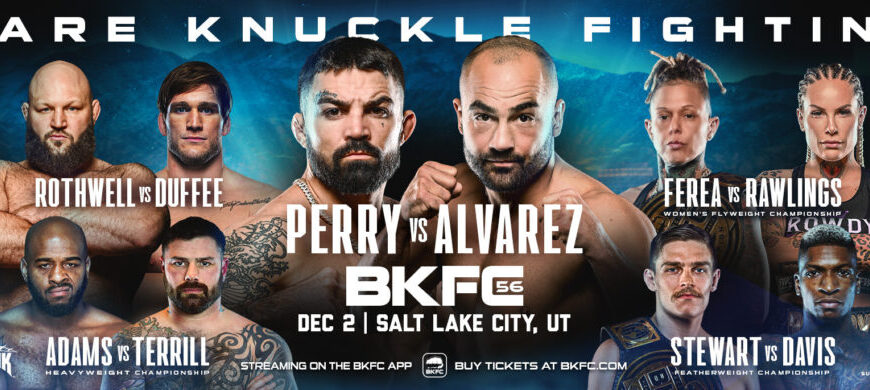In a move that could redefine the combat sports landscape, Bare Knuckle Fighting Championship (BKFC) has unveiled a series of ambitious plans for 2026, headlined by unprecedented fighter compensation programs and grand-scale tournaments. These announcements, made at the “Conor McGregor’s Champions Summit,” signal BKFC’s intent not just to compete, but to innovate at the industry’s core.
The Tournament Spectacle: Millions on the Line
At the forefront of BKFC`s 2026 agenda is the colossal $25 million “Baddest Man” tournament, slated to commence in March. This event is designed to draw top talent, featuring 32 fighters competing across weight classes ranging from 185 to 265 pounds. The stakes are undeniably high: a staggering $15 million prize awaits the champion, with the runner-up securing a commendable $1 million.
BKFC President David Feldman elaborated on the unique structure of this event. Recognizing the inherent intensity and physical toll of bare-knuckle fighting, the tournament is scheduled as a 12-month process. This extended timeline is a pragmatic approach, accounting for the recovery periods fighters require between bouts. The global footprint of BKFC`s ambition is also clear, with the tournament initiating in Los Angeles before culminating in the Middle East.
Not content to focus solely on the male division, Feldman also announced a parallel endeavor for female combatants: “The Baddest Bitch in the World” tournament. Set to kick off in mid-2026, this championship aims to provide women with a similar platform for competition and substantial reward, underscoring BKFC`s commitment to parity in high-stakes bare-knuckle combat.
A Paradigm Shift: Fighter Equity Program
Perhaps the most profound announcement, and one with potentially lasting implications for the entire combat sports industry, is the introduction of a fighter equity program. This initiative allows champions and long-tenured BKFC fighters—those with at least 10 fights under the promotion`s banner—to become part-owners of the company. It`s a bold departure from traditional models, where athletes typically earn purses and bonuses without a stake in the promotion`s long-term success.
“Me and Conor had a long talk and we said, ‘Let’s do something that no one’s ever done: let’s make all of our fighters owners of the company,’” Feldman stated, emphasizing the immediate nature of the rollout. “I’m not talking about I’m going to do it next week, I’m going to do it tonight.”
The announcement resonated deeply with fighters present, notably with Conor McGregor, who, as a part-owner himself, vocally championed the decision. McGregor`s personal history, having contributed significantly to the rise of other combat sports entities without an ownership stake, clearly fueled his passion for this new model.
“Do you understand how incredible that is for our combatants to be rewarded in that way?” McGregor proclaimed. “For me, I fought my heart and soul, I gave everything to the rise of a company, and I got nothing for it. Now, here we are, our company, my company, we give back to the fighters who bleed for us. So welcome to the owner’s table, our world champions and our U.K. champions! We are in this together!”
The equity program is structured as a tiered system, directly linking a fighter`s success and loyalty to their ownership stake. For instance, any fighter who wins a title and defends it at least once is set to receive $100,000 in equity. The potential for earning grows substantially with continued dominance, with top performers—champions who successfully defend their titles 10 times—poised to earn up to $3 million in company equity.
McGregor underscored the immense value of this opportunity, particularly for those joining at what he termed “ground zero” of a promotion he believes is on track to become a “multi-billion-dollar fight promotion.” It`s an invitation for fighters to literally invest in their future, beyond the fleeting nature of fight purses.
A New Blueprint for Combat Sports?
BKFC`s announcements are more than just an expansion plan; they represent a potential paradigm shift in the economics of combat sports. By offering equity, BKFC is not just attracting talent with large purses, but creating a vested interest among its athletes in the promotion`s overall growth and success. This could foster a unique loyalty and commitment not typically seen in the industry.
The question now lingers: will other major combat sports organizations follow suit? The traditional model has long been scrutinized for its often-imbalanced distribution of revenue, with fighters bearing the physical brunt while promoters reap the lion`s share of profits. BKFC`s audacious step into fighter ownership, coupled with its massive tournament offerings, could very well serve as a disruptive force, challenging established norms and paving the way for a more equitable future for athletes in combat sports. The coming years will reveal whether this bold vision translates into sustained success and a lasting legacy of fighter empowerment.








